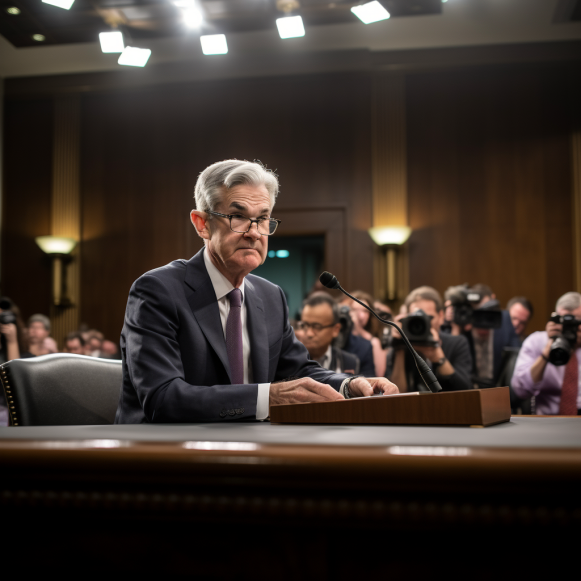BlackRock keeps pumping the brakes on a new fund amid state-level ESG criticism

- Last fall, BlackRock filed to launch an ESG municipal bond exchange-traded fund.
- The fund hasn’t yet launched while sustainable investing has become a flashpoint on Wall Street.
- A data provider tied to the ETF had named Larry Fink among the most overpaid chief executives.
Late last September, BlackRock did something it’s done hundreds of times before: it filed a new exchange-traded fund application with the Securities and Exchange Commission. The prospectus described a fund that considers environmental, social, and governance factors while providing investors with exposure to bonds issued by state and local governments. It is essentially an ESG version of the company’s $32 billion municipal bond fund.
ETFs typically launch within a few months of a fund manager’s initial paperwork, though delays are common. The SEC typically responds to initial ETF filings within three months.
However, BlackRock has filed to extend the launch date of the iShares ESG Aware ICE-HIP Muni Bond ETF nearly every month since last fall, according to filings. Some in the industry are perplexed by the delay for the world’s largest ETF provider.
“That’s fairly common for more entrepreneurial, small businesses.” But I don’t see it for monster firms very often,” said Wesley Gray, CEO of ETF firm Alpha Architect, referring to such extensions to launch ETFs.
The delay comes at a time when ESG investing critics have been most vocal at the state level. A number of state attorneys general and vocal lawmakers have criticized the world’s largest money manager, based in New York, for its ESG investment approach. On the campaign trail, Republican presidential candidates in the United States are demonizing ESG as a concept, politicizing sustainable investing.
As the largest ETF provider, with over 1,300 ETFs and $3.2 trillion in assets under management, BlackRock has become the most visible target for such criticism. Last year, it responded to attorneys general from Arizona, Texas, South Carolina, and 16 other states by stating that its involvement in ESG-related initiatives is consistent with its fiduciary duty.A spokesperson for BlackRock declined to comment for this story, citing filing period constraints.
“That is unusual for a firm like BlackRock,” said Matthew Tuttle, CEO and CIO of Connecticut-based ETF provider Tuttle Capital Management.
“To me, the reason BlackRock is delaying something is because they have an idea that a year ago sounded great and played well in the landscape.” Everyone was chasing ESG. “To be honest, a muni bond investing in ESG states is brilliant from an ESG standpoint,” he said. “It’s an idea that I don’t think will be as well received today.”
Similar funds have been launched by BlackRock competitors. This year, Goldman Sachs launched its first municipal bond ETF, which takes social and environmental factors into account.
Fink recently stated that he no longer uses the term “ESG” because it has become weaponized, while BlackRock reported on Wednesday that it supported only 26 of 399 shareholder proposals related to climate and other environmental issues this proxy season, citing a decline in overall proposal quality.
BlackRock has recently launched products with a sustainable label. Last year, the firm launched more than 50 sustainable ETFs and index mutual funds in the US and other markets, and it now has 254 sustainable ETFs globally, with 40 of those listed in the US. Last year, BlackRock’s ETF and index investments business, led by Salim Ramji, attracted $220 billion in net inflows.
“From a product development perspective, it is good practice to check in throughout the process and make sure the product that is being developed or launched is still satisfying the need that was originally identified,” said Tony Kelly, a former BlackRock and Goldman Sachs ETF executive who cofounded the fixed-income ETF provider BondBloxx. “A lot can happen between the decision to pursue an idea and its launch.”
Another twist has been added to BlackRock’s ESG municipal bond ETF.
The fund tracks the investment results of an index created by index giant ICE that employs ESG factors based on metrics provided by HIP Investor, a research and ratings firm that assesses the impact of investments. (Like many ETFs, this BlackRock ETF expressly states that it does not seek to be a “impact” fund that creates positive change, but rather considers ESG factors that pose risks to companies.)
Since 2015, As You Sow and HIP Investor have published an annual list of CEOs they believe are “overpaid” in relation to their companies’ performance and other factors such as shareholder votes against CEO pay packages.
Fink was ranked 30th and 33rd out of 100 executives this year and last year, respectively. The SEC and HIP Investor did not respond to requests for comment.






